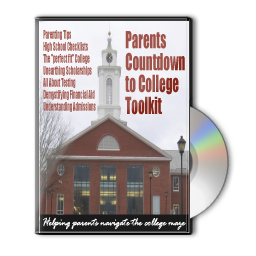A special thanks to Dr. Patrice Mitchell for participating in The Parliament Tutors Admission Spotlight Series. Dr. Mitchell is the Dean of Admissions & Financial Aid at UNC – Asheville.
 As the Dean of Admissions, what are your day-to-day responsibilities?
As the Dean of Admissions, what are your day-to-day responsibilities?
I can definitely say that no two days are ever the same, which is also what I love about working with students to help them navigate through what can often be a nerve-wracking experience. Depending on the time of the year, I spend a lot of time reviewing enrollment reports to ensure that admissions decisions are being made on a daily basis to ensure we will enroll the desired quality and quantity of new students. I also spend a lot of time responding to questions from prospective students and their families about the application process and requirements.
What do you consider the most significant parts of an application, the parts which applicants should prepare the most carefully?
In regards to UNC Asheville, the most significant component of the application is the high school record. Specifically, rigor of course work, grade point average, and class rank.
Is there anything you frequently see on an application that you hope to never see again?
There is nothing that jumps out at me. However, the one thing that I would caution students on is the tendency to reveal such personal and sometimes tragic information, but do not necessarily correlate those experiences to how they have prepared them to be successful at the institution.
What common pitfalls should applicants be careful to avoid?
I can not emphasis enough the importance of proofreading all of your supporting documentation that you submit as a part of the application – including having the correct name of the institution on the essay. (Yes, I have had read “It has been my dream to attend X college all of my life” when the college that I am reading the application for is actually college Y!
Students should also avoid missing deadlines or assuming they have plenty of time to submit information prior to the deadline. Time for technology glitches and mail delivery problems should always be accounted for when submitting application materials. Students should also follow up with their counselors and/or individuals submitting recommendations to give them friendly reminders regarding the deadlines.
Are there any myths about the application process which you would like to dispel?
One thing that I would share about the process is that Admissions Offices really do want to make an admissions decision based upon whether or not the individual student will be a good fit and for the institution. Therefore, it is important for you to take the time to write a good essay that gives some insight into who you really are that SAT and gpa averages won’t tell us. It is also important to have an individual that truly knows them and the institution the student is applying. These are the reasons that you sometimes here of a student with a stronger SAT and gpa not getting into a specific college when there classmate does.
What advice would you give to an applicant with below-average test scores but significant extra-curricular experience?
Please remember that there are literally thousands of college options available to you. You just have to be open to exploring a handful that you may not have initially had on the top of your list. The reality is that at some schools the admissions process is selective and not having all of the components may keep you from getting an offer. However, at those schools where the SAT is optional or the SAT being below average many not be as big of a problem, that may be the school where you end up deciding to attend and find yourself having a wonderful experience. However, you may still want to contact the prospective college and ask to speak to the admissions counselor responsible for your high school. Establishing a relationship with that individual can sometimes be helpful.
Do you frequently have to turn away applicants whom you wish you could admit? If so, what could those applicants do to be admitted?
Unfortunately, we are not in a positive to offer admission to every applicant. In that case, the transfer option is discussed. This option is also being used by students who are admissible but want to get started at a two-year college and transfer in. There are several universities with articulation agreements with two-year colleges. Therefore, the idea of transferring in as an upper-classmen has become more of a positive alternative for students who are not competitive for freshmen admission. The important thing to remember is that sometimes there are different paths to get to the same destination.
How much faith do you have in the ability of the SAT to predict success at in college?
Here at UNC Asheville we take a holistic approach to the admissions process in order to reduce the importance that one variable has on the application decision. This is particular important to us since the high school rank and grade point average has been shown to be more of a predictor of success here than the SAT. Having said that, we do have a selective process in place, and we are a part of the UNC system, which requires us to report the average SAT, so it is a factor.
What do you look for in a recommendation letter?
Students should ensure that the recommendation letter is from someone who knows them well enough to speak to the attributes and strengths that make the student a good fit with the college. It also helps if the letter is written to the specific college. Not everyone is going to be able provide such detailed information, or even has the time to do so if they wanted to, but I enjoy reading letters from teachers and/or counselors who have some type of story or anecdote to share about the student that I otherwise would not know about them.
Joseph Fernandez conducted this interview. Joseph is a Tutor with Parliament Tutors. He specializes in SAT Tutoring.








